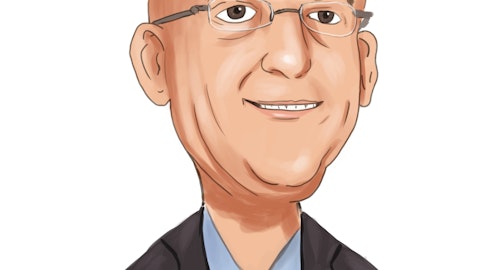Kun Dai:
Jack Wang: I will also briefly summarize some of the key policies. First, the government is clearly encouraging complying dealership operations, while strengthening oversight over unlawful practices. So for example, new regulations require that each individual can only trade less than two used cars in a year, and this policy restriction will eliminate the illegitimate operations that were largely unregulated in the industry before, thus standardizing the market and creating a healthier environment for compliant businesses to grow.
Kun Dai:
Jack Wang: Moreover, the reform of the used car tax system also significantly reduced the complexity of vehicle title transfers and also reduced the cost of our business operations. At the same time, the implementation of electronic vehicle profiles and online registrations also enabled us to further expand our access to used cars and improve transaction efficiencies.
Kun Dai:
Jack Wang: So overall, China has been implementing a large number of industry boosting policies. The regulatory support has definitely improved and will continue to improve the overall industry environment.
Kun Dai:
Jack Wang: Alright. That’s our answer to — all right. Thank you, that’s our answer to China Securities.
Unidentified Analyst: Thank you.
Operator: Thank you. And our next question today comes from Fei Dai with TF Securities. Please go ahead.
Fai Dai:
Jack Wang: Hey, Fai Dai.
Fai Dai: I’ll translate my question in English. We saw your transaction volume grew by 60% in the second quarter, while the industry total transaction dropped by 5%. Can you elaborate on what’s behind your growth in a challenging market? Thank you.
Kun Dai:
Jack Wang: Sure, Dai Fei. The used car industry, like you said, and like many other industries experienced headwinds during July and September. As the industry recorded a rarely seeing year-over-year decline in transaction volume, it was particularly difficult for us to achieve a year-over-year growth of over 200% in our retail transaction volume under such market conditions. In addition to transaction growth, our customer satisfaction level also continued to improve.
Kun Dai:
Jack Wang: This was made possible by the execution efforts of the entire Uxin team. Our achievements also demonstrated the resilience and the vitality of the business model we built. Compared to traditional used car dealerships, our model has the complete advantages.
Kun Dai:
Jack Wang: The first is that we leverage our advanced reconditioning factory to develop our used car product offerings — product capabilities far ahead the traditional car dealers. We utilized our assembly line management advanced reconditioning equipment and processes to recondition our vehicles. Our advanced reconditioning factory ensures that we have a stable supply of high-quality used cars on a large scale. And high-quality used cars is an important reason that customers choose us in a challenging market environment.
Kun Dai:
Jack Wang: The second is that we have developed a very innovative new retail experience for used car purchases. Our fully self-owned superstore is far superior, compared to the traditional used car market in terms of vehicle selection, purchase process, service experience and after-sales services. In our superstore buying a used car is no longer like going to a farmers’ market, but more like going to a modern IKEA or POSCO or (ph) Club supermarket. Our customers can enjoy a one-stop experience starting from choosing a car, transferring the titles and accessing the after sale services in the store. We have become a (ph) landmark for local east car consumers in every regional market we enter, whether it’s Xi’an or Hefei.



